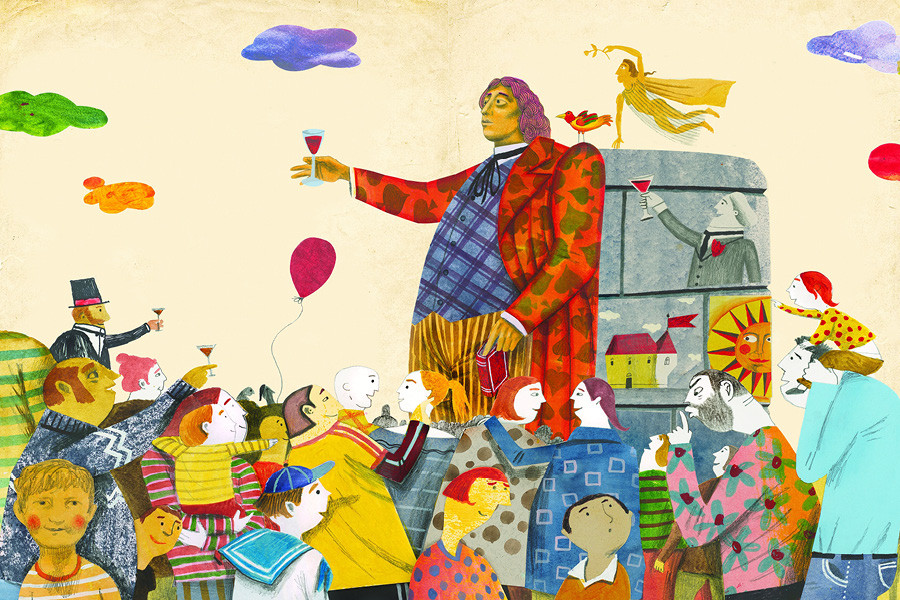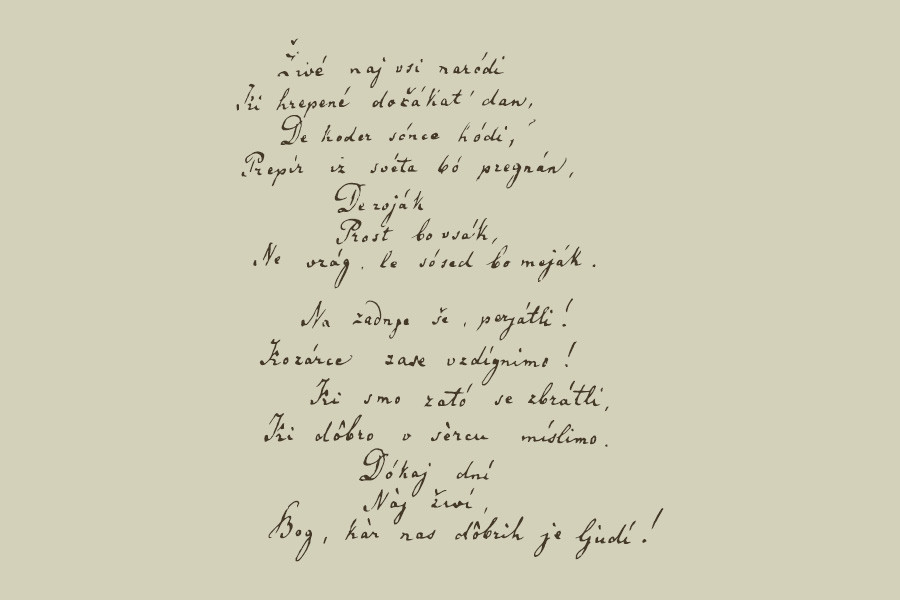The Slovenian anthem emphasises ties and friendship among nations
To date, the Slovenian people have lived in four great supranational formations: the Holy Roman Empire of the German Nation (or German Empire for short), the Austro-Hungarian Empire, Yugoslavia and now the European Union. In each of these periods, we had a different anthem. But, only in 1990 did we get our own official Slovenian anthem, Zdravljica.
Prešeren's Zdravljica is in essence a toast and is one of the few non-militant anthems that were influenced by the ideas of the French Revolution and liberation and combined the national idea with internationalism. The Slovenian anthem rejects wars and disputes and emphasises ties and friendship among nations.
Although the poem was written as far back as 1844, it has proven to be topical time and again. Particularly so in the current crisis, when humanism is again tested, at both the national and international levels.
Zdravljica stands out among the European anthems, in a positive way. Its message transcends nationalism, and in particular in the stanza before last (God’s blessing on all nations) the poem reaches a culmination in praising the values of peace, tolerance and cooperation among nations.
Zdravljica, a poem written in the 1840s by Slovenia's France Prešeren to celebrates peace, freedom and fraternity, has been awarded the European Heritage Label. The European Commission conferred the honour in March 2020 on ten pieces of heritage which testify about European ideals, values, history and integration.
Similar articles
-
A short history of Slovenia
-
The Slovenian anthem emphasises ties and friendship among nations
-
1991 Prešeren Award Winners
-
Drago Jančar – a European storyteller in the Slovenian language
-
Dialects enrich the Slovenian language
-
Pioneers of Slovenian Beekeeping
-
Slovenian monasteries
-
Extremely rich cultural heritage
-
Stories from beehive panels
-
World’s oldest vine



